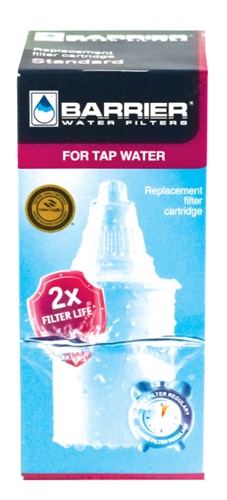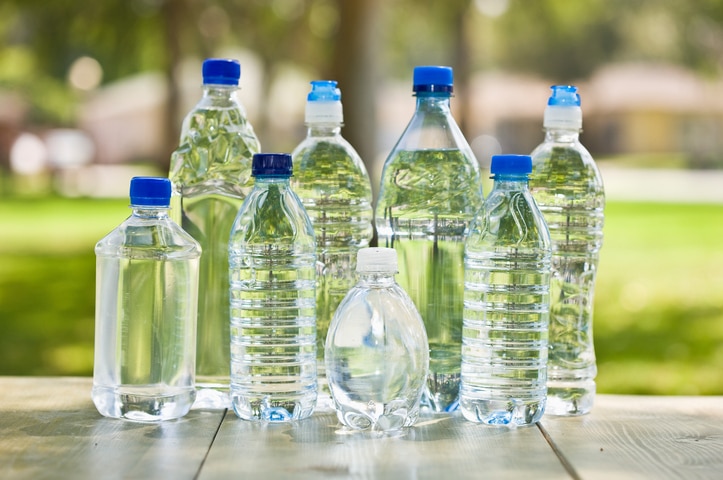Step aside, soda. Americans guzzled nearly 12.8 billion gallons of bottled water in 2016, bypassing carbonated soft drinks to become the country’s most popular beverage.
The typical American downed 39 gallons of bottled water last year, according to Beverage Marketing Corp., which monitors the beverage industry. That’s half a gallon above the average consumption of carbonated soft drinks (think Coke and Pepsi) in 2016. Beverage Marketing predicts consumption of bottled water will reach 50 gallons per person in the U.S. by 2025.
Michael Bellas, chairman and CEO of Beverage Marketing, says: “Where once it would have been unimaginable to see Americans walking down the street carrying plastic bottles of water or driving around with them in their cars’ cup holders, now that’s the norm.”
Environmentalists, water conservationists and other critics wish it weren’t the norm. America’s growing love affair with bottled water is costly, wasteful and environmentally unfriendly, they say.
Here are four reasons that critics cite to flush the bottled-water habit.
1. Bottled water costs more than tap water.
Simply put, bottled water drains your bank account far more than tap water does, critics complain.
In 2016, sales of bottled water at the wholesale level totaled nearly $16 billion, up 10 percent from 2015, according to Beverage Marketing. That sum is equivalent to the size of the economy of Bosnia and Herzegovina, a European nation with about 3.8 million residents.
Breaking it down by gallon, the average wholesale price of a gallon of U.S. bottled water was $1.20 in 2014, according to Beverage Marketing. A year earlier, in 2013, it was reported that a gallon of bottled water cost 300 times more than a gallon of tap water.
“Tap water is pennies to the dollar spent on bottled water,” says Jason Montgomery, owner of Jason’s Water Systems in San Antonio.
In 2011, a writer for Consumer Reports calculated that in New York City, it would cost 48 cents a year to fill a 16.9-ounce bottle with municipal tap water every day. By contrast, buying bottled water every day would cost $346 a year, the writer found.
Counterargument: The International Bottled Water Association says bottled water is sold at many price points, and consumers often save money by buying bottled water in bulk at grocery stores and other retailers.
Critics of bottled water “tend to cite prices from the most expensive retail outlets they can find … and use them as the basis” for dramatic claims about the retail cost of bottled water, the association says.
2. Bottled water creates too much waste.
Montgomery says the waste generated by discarded plastic water bottles “is out of control.”
“Prepackaged water bottles are made of low-quality plastics that cannot be reused and end up in landfills at a staggering rate,” he says.
More than three-fourths of plastic water bottles never make it to the recycling bin, according to BottlesUp, a maker of glass water bottles.
“While bottled water may play an important and vital role in areas stricken with water supply issues, on the whole it represents a dire environmental threat,” says Jacob Hatch, author of the Hydration Anywhere blog.
Counterargument: The International Bottled Water Association says clear-plastic PET (polyethylene terephthalate) water bottles, as measured in tons of landfill space, constitute 3.3 percent of all beverage containers that wind up in landfills. That compares with 66.7 percent for glass, 13.3 percent for plastic soda bottles and 7.9 percent for aluminum, according to the association.
All PET bottles are fully recyclable, the group says, and 37 percent of single-serve PET plastic water bottles are recycled. Furthermore, the group says, containers for bottled water use much less PET plastic than containers for carbonated soda do, as the carbonation requires thicker plastic.
3. Bottled water gobbles up too many natural resources.
The Pacific Institute, a think tank specializing in water issues, reported in 2007 that it requires the equivalent of more than 17 million barrels of oil to make plastic water bottles for the U.S. market. The whole process of producing bottled water — bottle manufacturing, water processing, bottled-water transportation and so forth — demands up to 2,000 times the energy needed to produce tap water, the institute says.
Counterargument: The International Bottled Water Association points out that the environmental footprint of bottled water — in terms of water and energy consumption — is the lowest of any packaged beverage. Bottled water drinks up just 0.01 percent of all water consumed annually in the U.S., the association says.
“When it comes to overall water use, the bottled water industry is actually a small and efficient water user,” the group says.
4. Bottled water is no healthier than tap water.
Bottled water may contain much more than water, according to the Environmental Working Group, a pro-environment organization.
Testing commissioned in 2008 by the Environmental Working Group uncovered 38 pollutants in 10 brands of bottled water. Among those contaminants were industrial chemicals, radioactivity and bacteria.
“Unlike water utilities, which must test their water regularly and provide the results to consumers once a year, the bottled water industry rarely discloses the results of contaminant testing it conducts,” the group says. “Instead, the industry hides behind the claim that bottled water is held to the same safety standards as tap water.”
According to Reader’s Digest, more than one-fourth of bottled water actually comes from municipal water supplies. In other words, it’s filtered tap water.
Counterargument: The International Bottled Water Association says the safety and quality of bottled water are “trusted,” and bottled water is “comprehensively regulated” by the U.S. Food and Drug Administration (FDA).
The FDA says it requires producers of bottled water to:
- Process, bottle, store and transport bottled water under sanitary conditions.
- Protect water sources from bacteria, chemicals and other contaminants.
- Embrace quality control measures to ensure the safety of water.
- Sample and test both source water and bottled water for contaminants.
The International Bottled Water Association promotes zero-calorie bottled water as America’s “healthiest packaged beverage,” enabling health-conscious consumers to move away from drinks packed with sugar or artificial sweeteners.
“Access to bottled water is a key component of healthy hydration for ‘healthy people,’ so it should not be discouraged, prohibited or overlooked when discussing water’s role in a healthier lifestyle,” the association says.




